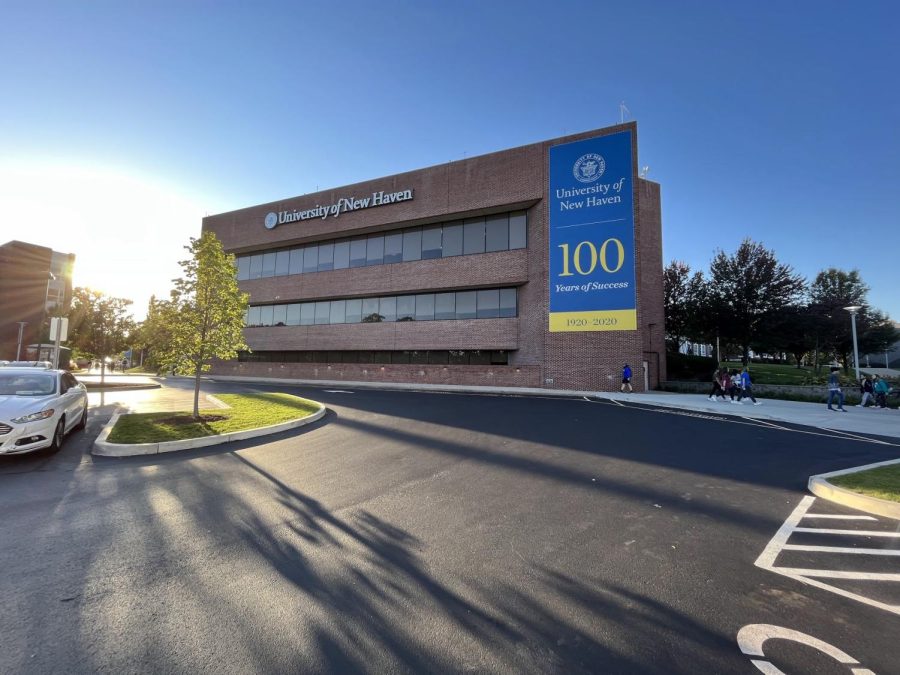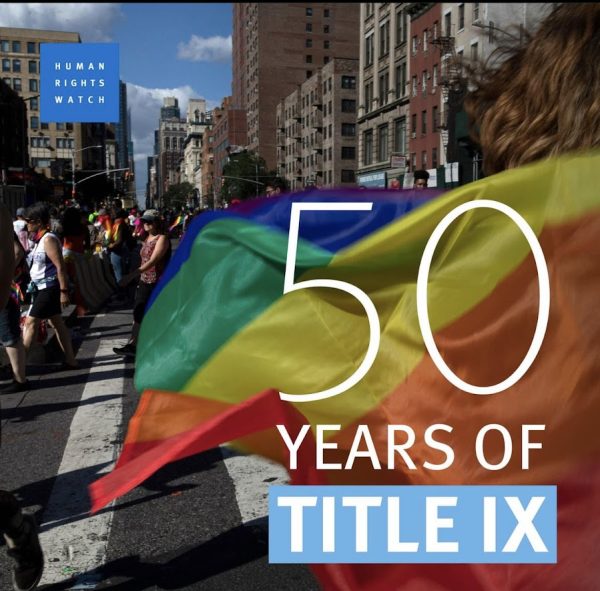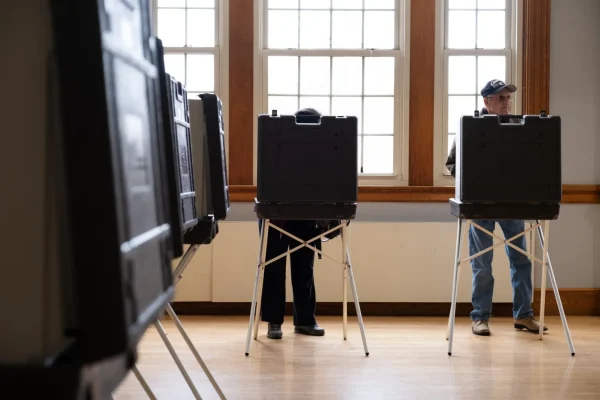Polls on students’ attitudes towards politics
Photo courtesy of Samuel Weinmann
Students walk in front of the Marvin K. Peterson Library at the University of New Haven in West Haven, Conn., Wednesday, Oct. 20, 2021.
The current decline in American political efficacy—or trust in government and the democratic process—has a negative impact on voting trends. If more adults believe that they have no voice in the government, more adults will be less likely to participate in democratic processes.
So how do students at the University of New Haven view politics, political efficacy and the importance of various policy issues?
Via Google Forms,104 university students anonymously responded to a survey on their views of policy issues, local politics and their own role in politics. Here are some key findings from the political efficacy survey:
1. Most UNH students are Democrats
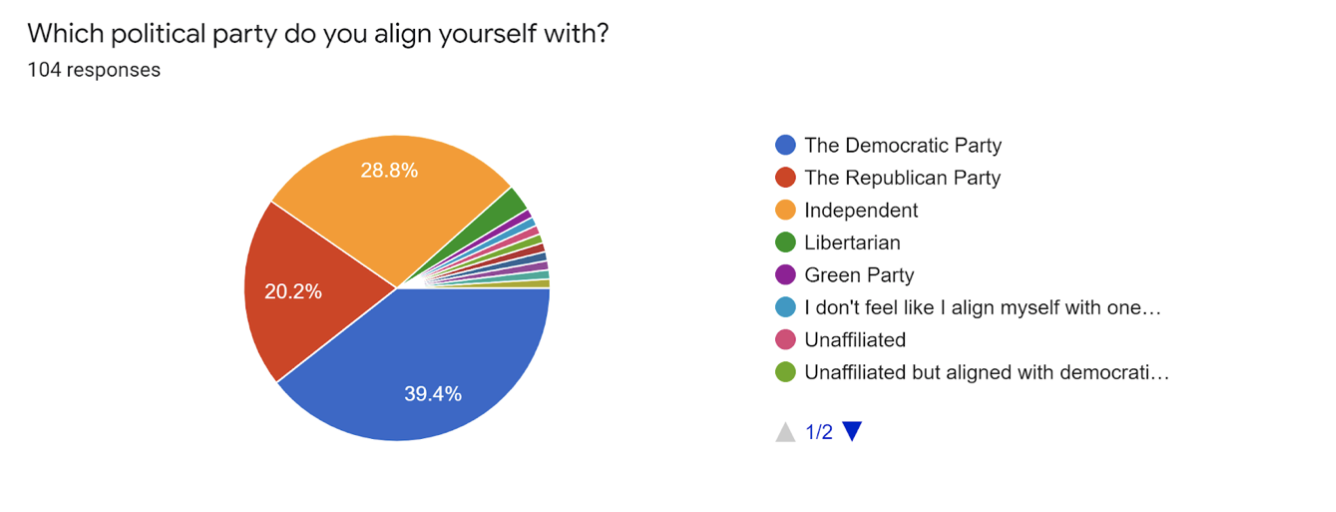
Out of 104 respondents, 39.4% of students aligned themselves with the Democratic Party, 20.2% aligned themselves with the Republican Party and 28.8% aligned themselves with the Independent Party. The remaining 11.6% aligned themselves outside of these parties.
Out of the 11.6% that aligned themselves outside of these parties, three students identified themselves as Libertarian, another three as unaffiliated and two others identified as a part of the Green party. One student identified themselves as a Communist while another wasn’t sure where they fit. Two others didn’t care for politics or follow it at all.
2. Most students prioritize social issues and human rights issues over foreign policy, domestic and economic issues
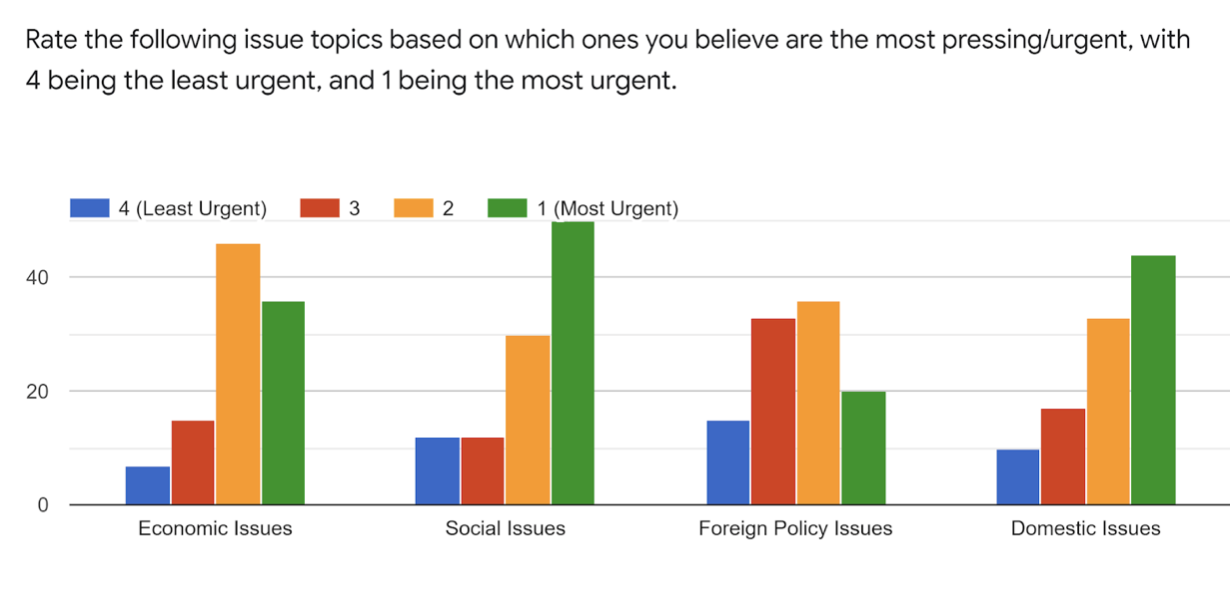
Students were asked to prioritize economic issues, social issues, foreign policy issues and domestic issues. They were asked to rate them independently, in order of importance, with four being least urgent and one being most urgent.
Out of all of the issues, university students agreed that social issues were most urgent, followed by economic issues, domestic issues and foreign policy issues.
Based on the majority, 44.2% of students ranked economic issues as a three on the scale of importance. 48% of students ranked social issues as a one, 34.6% ranked foreign policy issues as a three, and 42.3% ranked domestic issues as a one.
Students were then asked to use the same scale to rank specific policy issues, including terrorism, human rights, climate change and pandemic response and vaccine distribution.
On a basis of majority, 42.3% of students viewed terrorism as deserving the most immediate action, whereas 64.4% viewed human rights to be in that category. 42.3% of students viewed climate change as deserving the most immediate action and 45.2% put pandemic response in that same category.
3. Most students feel neutral about the importance of local politics
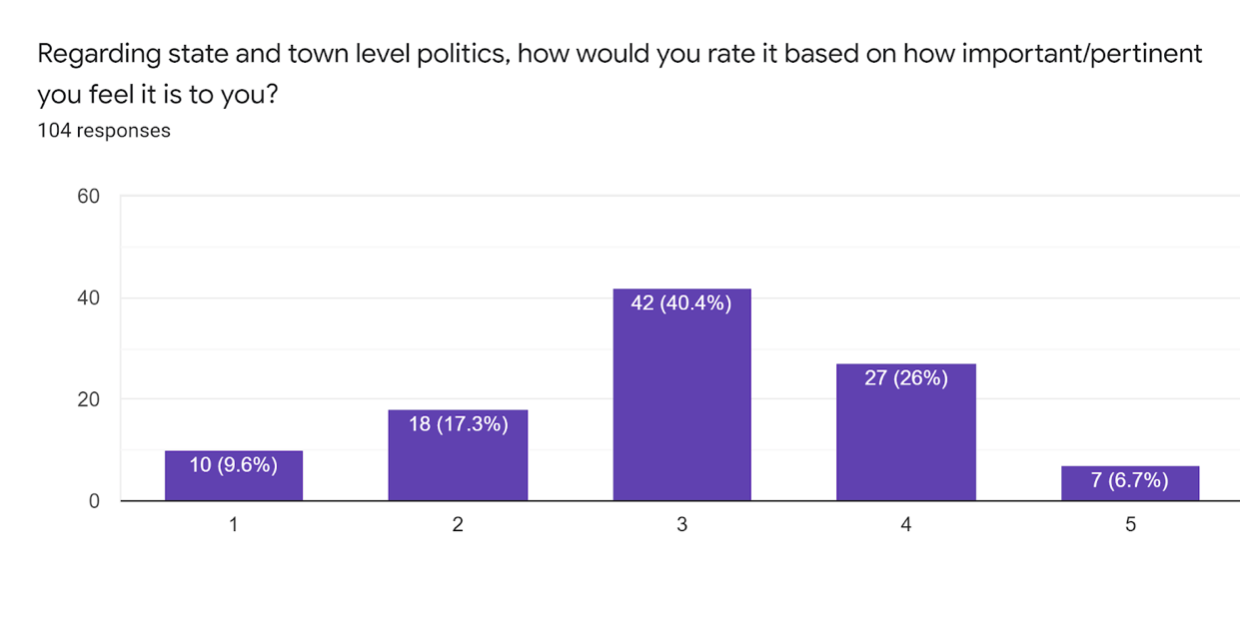
On a five-point scale with one being least important and five being most important, the respondents rated the importance of state and town level politics; 9.6% rated local politics to be a one, 17.3% gave a two, 40.4% rated it a three, 26% gave it a four and 6.7% to be a five.
4. Students feel that politics directly impacts their lives, but few feel they are able to influence politics or policymaking.
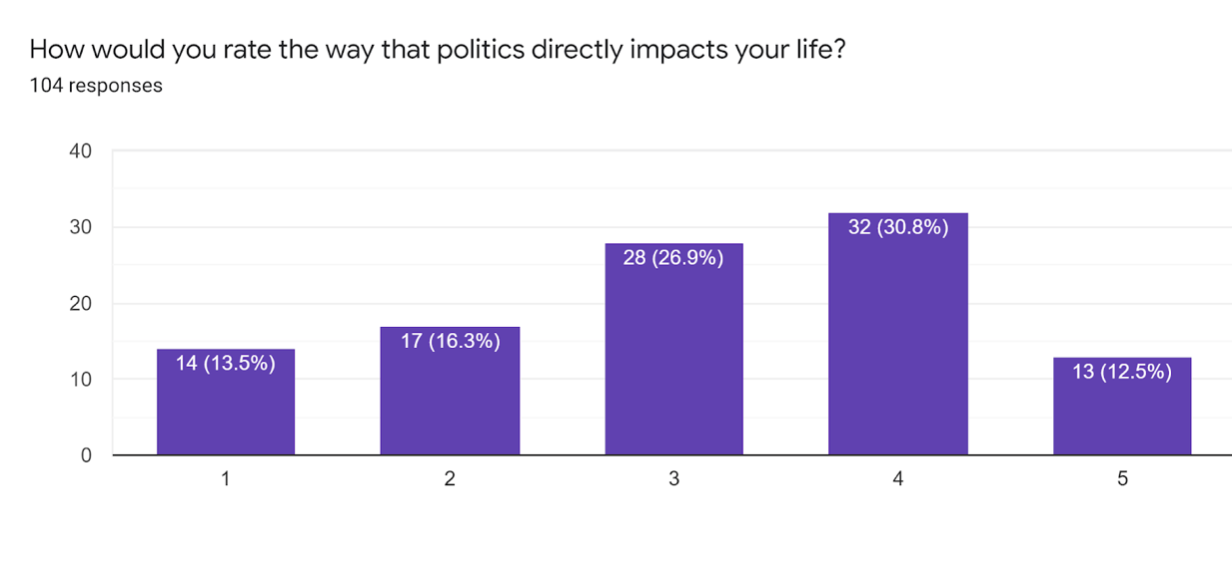
The final two questions in the survey inquired how politics affects the lives of students and how confident students feel about their influence on politics and policymaking in the U.S.
Regarding how politics directly impacts the lives of students, participants were given a five-point scale with one meaning that politics doesn’t affect their lives at all, and five meaning that politics greatly affects their lives.
13.5% of students chose one; 16.3% chose 2; 26.9% chose three; 30.8% chose four and 12.5% chose five.
In another five point scale–with one meaning that students believe they do not have an influence, and five meaning that they have substantial influence–students were asked if they believe they can have an influence on politics and policymaking: 24% of students chose one, 33.7% chose two, 23.1% chose three, 10.6% chose four, and 8.7% chose five.
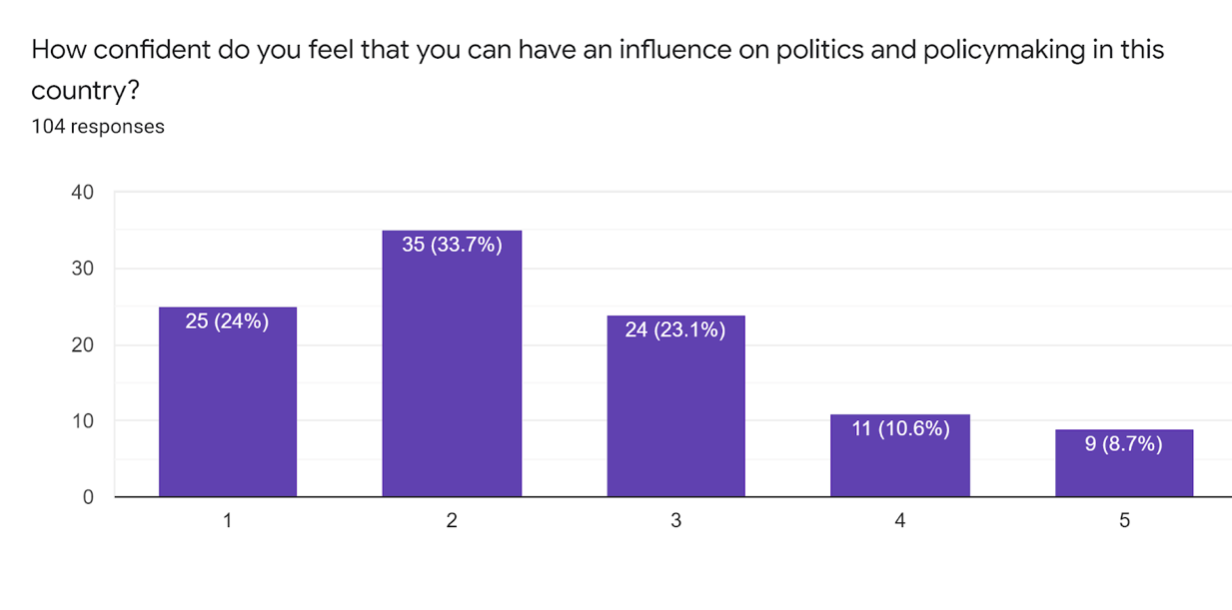
Central Findings
This data shows that the current decline in American political efficacy is also impacting university students.
Essentially, students care about social and human rights issues; they also understand how politics influences their lives.

Samuel Weinmann is a passionate journalist who is a junior international affairs major at the University of New Haven. As the editorial head of the Charger...

